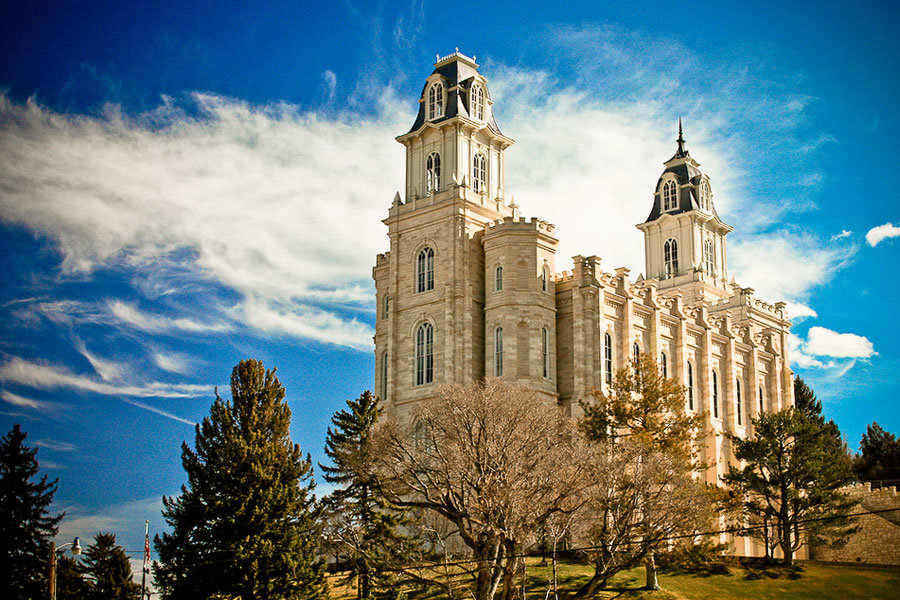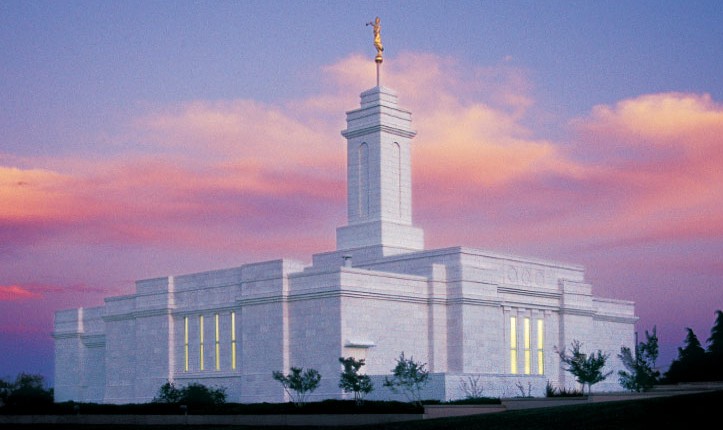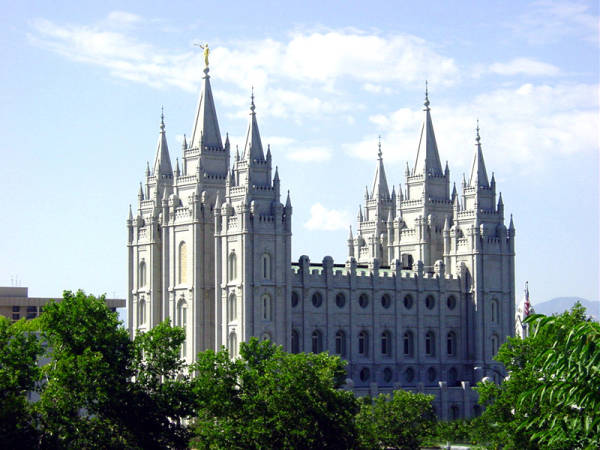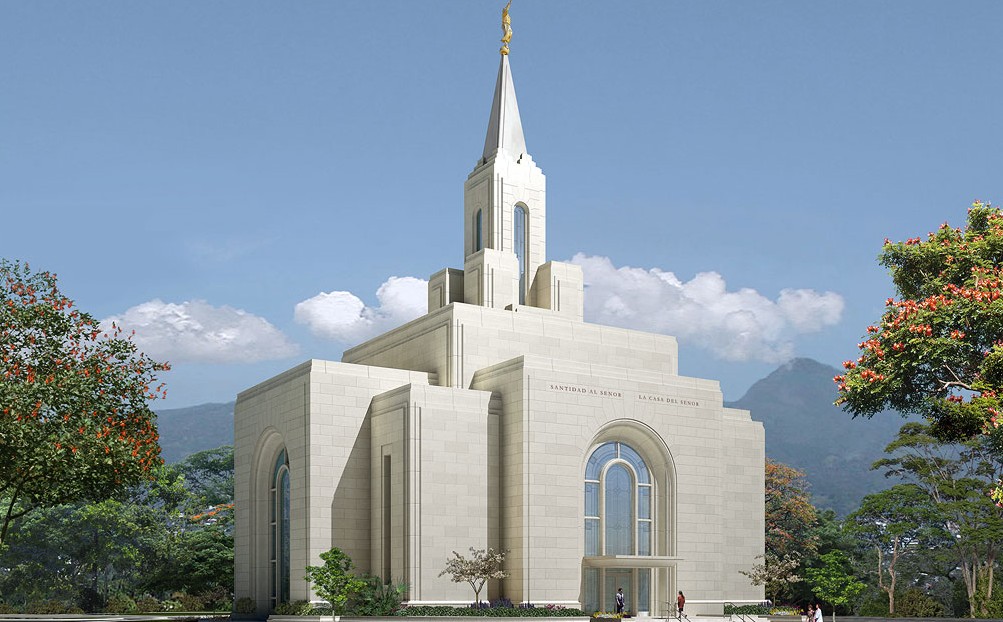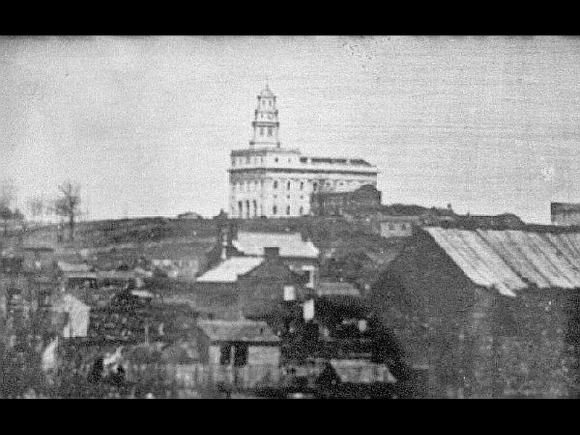Question
Gramps,
I have read a lot of your advice on your website and I really respect your opinions and trust your knowledge of the Church; that is why I am contacting you today. I was baptized into the LDS church on October 20th 2007, and on November 7th 2008 I went to the temple for my own endowments. Before I went to the temple I felt that I had a good testimony of this church, but after going to the temple I feel as if my whole world has come crashing down. The temple was not at all what I thought it would be. I knew that it would be different and that there would be a lot of symbolism used, but I don’t think that there was any way I could have been prepared for what I experienced that day. It was a very scary experience for me; I felt like I was doing something wrong…it almost felt Satanic to me. I know that when many people go to the temple for the first time it is a little different and they don’t really understand it, but in my case I was downright frightened. I don’t know if this is because I wasn’t raised in the Church and therefore wasn’t exposed to enough to prepare me for the temple, or what. I went in expecting something so beautiful and peaceful and I expected to feel close to my Father…but instead all I felt was fear. I guess it was everything about the temple; the clothing, the covenants, the symbols, just everything. It really scared me and I felt like it was wrong.
Before I went to the temple everyone kept telling me how wonderful it would be and how you feel the Spirit so much while you are there, and I was so looking forward to it. I must say that the Sealing the next day was much much better; I actually did feel the Spirit that day and it was just fine. But the endowment session the night before really shook my faith in this church; it didn’t seem to have anything to do with the church at all…it felt like it had no connection to the Church or God or Christ or anything. I know I am rambling, but I guess I’m just trying to get you to understand how confused I am. My testimony has really suffered because of this experience. I told my bishop that my experience at the temple was scary and that I never wanted to go back again. He is a very good bishop and I know it was disappointing to him to hear me say that. I was hoping he would help me but when I told him he just kind of stared at me blankly and then told me to pray about it. That was it.
Ever since I went through the temple I have been doubting the entire church and more and more things keep popping up that make me doubt the church. I don’t know what has happened to me; just three months ago I was so excited to go to the temple and I loved the church and belived in it. And now today I am contemplating leaving the church.
I know you are a very intelligent person and that you have a really good understanding of the Church. I’m hoping that you will have some words of comfort or reassurance for me about the temple. I’m also hoping you might have some advice for me on how I can get past this. I would love to be able to feel the way I did before about the Church, but I am just so confused I really don’t know what to do anymore. Please help me.
Sincerely,
Megan
Answer
Dear Megan,
I am truly sorry that you had a negative experience when you attended the Temple for the first time. Due to the sacredness of what goes on in the Temple, we are unable to discuss in detail what transpires there and why. It is through study, prayer and Temple attendance that we come to fully understand our Temple experience. President Benson, in his later years, stated that he continued to learn new things about the Temple. I promise you that if you continue to attend the Temple worthily, with an open heart, you will come to love the experience of serving and being in the Temple. It is a place of personal revelation and peace.
I would encourage you to remember the wonderful blessings you were promised when you received your endowments as well as those promised to you when you were sealed to your husband. These are truly great blessings that our Father in Heaven promises to us. Brigham Young gave us the following definition of the endowment: “Let me give you a definition in brief. Your endowment is, to receive all those ordinances in the House of the Lord, which are necessary for you, after you have departed this life, to enable you to walk back to the presence of the Father, passing the angels who stand as sentinels, being able to give them the key words, the signs and tokens, pertaining to the holy Priesthood, and gain your eternal exaltation in spite of earth and hell. ” (Discourses of Brigham Young, comp. John A. Widtsoe [Salt Lake City: Deseret Book Co., 1971], page 416.)
No other blessing rival those that we receive in the Temple, the house of our Lord.
Next I would suggest that you read and study all that you can concerning the Temple and the ordinances we receive there. The following is excerpts from an article that has appeared in many lesson manuals of the Church and in Church Magazines. It was written by Elder Elray L. Christiansen, who served as President of the Salt Lake Temple as well as a General Authority.
Most of what Latter-day Saints learn about the temple is learned in the temple itself. However, there are some things that the First Presidency feels you ought to be aware of so that you will be properly oriented and receive adequate understanding from your temple experience.
Before a person can be married (or sealed as husband and wife) in the temple, he or she receives the ordinances of the endowment.
As you receive your endowment, you will be given instruction relative to the purposes and plans of the Lord in creating and peopling the earth and in exalting his children in the life to come.
Elder James E. Talmage, formerly of the Council of the Twelve, has given a clear description of the endowment:
“The Temple Endowment, as administered in modern temples, comprises instruction relating to the significance and sequence of past dispensations, and the importance of the present as the greatest and grandest era in human history. This course of instruction includes a recital of the most prominent events of the creative period, the condition of our first parents in the Garden of Eden, their disobedience and consequent expulsion from that blissful abode, their condition in the lone and dreary world when doomed to live by labor and sweat, the plan of redemption by which the great transgression may be atoned, the period of the great apostasy, the restoration of the Gospel with all its ancient powers and privileges, the absolute and indispensable condition of personal purity and devotion to the right in present life, and a strict compliance with Gospel requirements. …
“The ordinances of the endowment embody certain obligations on the part of the individual, such as covenant and promise to observe the law of strict virtue and chastity, to be charitable, benevolent, tolerant and pure; to devote both talent and material means to the spread of truth and the uplifting of the race; to maintain devotion to the cause of truth; and to seek in every way to contribute to the great preparation that the earth may be made ready to receive her King,—the Lord Jesus Christ. With the taking of each covenant and the assuming of each obligation a promised blessing is pronounced, contingent upon the faithful observance of the conditions.
“No jot, iota, or tittle of the temple rites is otherwise than uplifting and sanctifying. In every detail the endowment ceremony contributes to covenants of morality of life, consecration of person to high ideals, devotion to truth, patriotism to nation, and allegiance to God.” (The House of the Lord [Deseret Book Co., 1968], pp. 83–84.)
To endow is to enrich, to give to another something long-lasting and of much worth. The endowment ordinances enrich in three ways: 1. The one receiving the ordinance is given power from God. “Recipients are endowed with power from on High.” 2. A recipient is also endowed with information and knowledge. “They receive knowledge relative to the Lord’s purposes and plans. …”3. When sealed at the altar, a person is the recipient of glorious blessings, powers, and honors, as part of his endowment.
The endowment is a most important and significant blessing, and the Lord desires his worthy children to receive it. You should all look forward to the day when you will receive your own endowment.
The ordinances of the temple are so sacred that they are not open to the view of the public. They are available only to those who qualify through righteous living. They are performed in places dedicated especially for this purpose. Their sacred nature is such that discussion in detail outside the temple is inappropriate.
Many blessings come to those who receive and respect these sacred ordinances, which are so necessary for exaltation. Participation in temple work provides dynamic, vivid, useful instruction in gospel principles, and the temple is a place for contemplation and prayer.
The temple is a sanctuary from the world, a bit of heaven on earth, and one should continue to live worthily so that he can go to the temple often and renew his covenants.
ElRay L. Christiansen, “Some Things You Need to Know about the Temple,” New Era, Jun 1971, 25.
In addition to this article there are two books that are very helpful in understanding Temples and what transpires there. The first is “The House of the Lord”, by Elder James E. Talmage. This is the book Elder Christiansen quoted from in the above article. The other is “The Holy Temple” by President Boyd K. Packer. If you continue to have questions you might also ask a member of the Temple Presidency to help you understand the next time you attend the Temple. As you study and attend the Temple you will feel His spirit, which will be very comforting.

